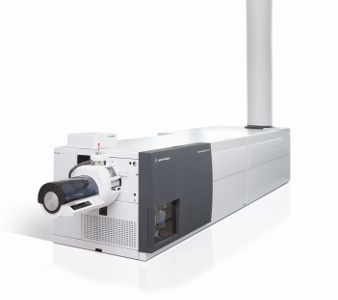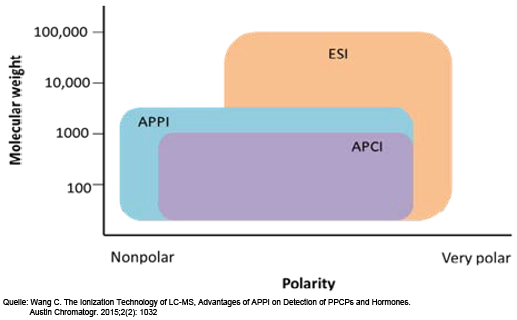DIP-APPI-MS
The new DIP-APPI-MS by SIM is ready for use
Does the coffee contain what the declaration says on the package? Is the olive oil pure or flawed with other oils? These are typical questions, which can be answered with modern analytical methods.

In order to make analytics simpler and more precise, SIM and a working group of Prof. Dr. O.Schmitz of Duisburg-Essen University have cooperated for a project funded by BMWI.
Being able to analyze nonpolar substances with higher sensitivity – that was the task. The result has been a novel Direct Inlet Probe Atmospheric Pressure Photoionisation (DIP-APPI) system for high-resolution mass spectrometry. SIM developed an innovative ionization-chamber, into which substances are inserted directly by a push rod tip.
A vacuum-UV-radiator is functioning as an ion source. The analyt is inserted into the ionization chamber with a temperature programmable push rod tip, and it is then vaporized and ionized by a temperature program (ramps with heating rates up to 2° C/s to 400° C).

Advantages
Photo ionization at ambient pressure (APPI) occurs with the Direct Inlet Probe (DIP) in a virtually water- and solvent-free ionization chamber – a stark contrast to an HPLC-APPI-MS measurement. This excludes falsifications by solvents, and increases the sensitivity of the measurement. The DIP-APPI-MS measurement is possible with the same system.
Measurement duration is relatively short, as there is largely no need for sample preparation and chromatography with the DIP-APPI measurement. This makes this procedure very suitable for screenings. Furthermore, the normal LC/MS measurement is available, so it is possible to switch between both modi without any conversion, simply by changing the software configuration.
Areas of application
The new DIP-APPI-MS is exceptionally well suited for detection of bisphenol A, quality control of pharmaceutical compounds, and for analysis of a number of nonpolar substances, which cannot be ionized that easily by APCI.

|
|
Application exampleS. Horst, working group Prof. Dr. O. J. Schmitz, Duisburg-Essen University, has analyzed various brands of Espresso coffee with DIP-APPI-Q-TOF-MS and DIP-APPI-IM-Q-TOF-MS. The task was to identify differences between the brands of coffee. What nonpolar substances do you need to have analyzed with higher sensitivity? Let's talk about this. Please contact us. |



